If you're remodeling your bathroom, you may have started looking for inspiration for a new shower design. If this is the case, you've probably already realized that there are actually not very many options to sort through. While tile design may be limitless, showers basically come in two types - a prefab base or a tile floor. We've consulted with contractors and specialists for a comprehensive list of the pros and cons of each.
One option isn't better than another, but a prefabricated base or tile flooring is definitely better suited for certain shower situations. You'll almost certainly be able to compare the pros and cons of each to determine which one is ideal for your bathroom.
Shower bases are:
- More affordable, typically.
- Easier to install with fewer chances for mistakes.
- Easy to clean.
Tiled floors offer:
- More flexible as far as design and size: easily tile an irregularly-shaped shower. A base, however, may not be available in unusual sizes.
- More variety in material and color.
- More options for slip resistance.
Keep reading for more specifics on the pros and cons of each, what you'll need to consider before you make your final choice, and how long you can expect each one to last. By the end of the article, you'll know which one is the best for you.
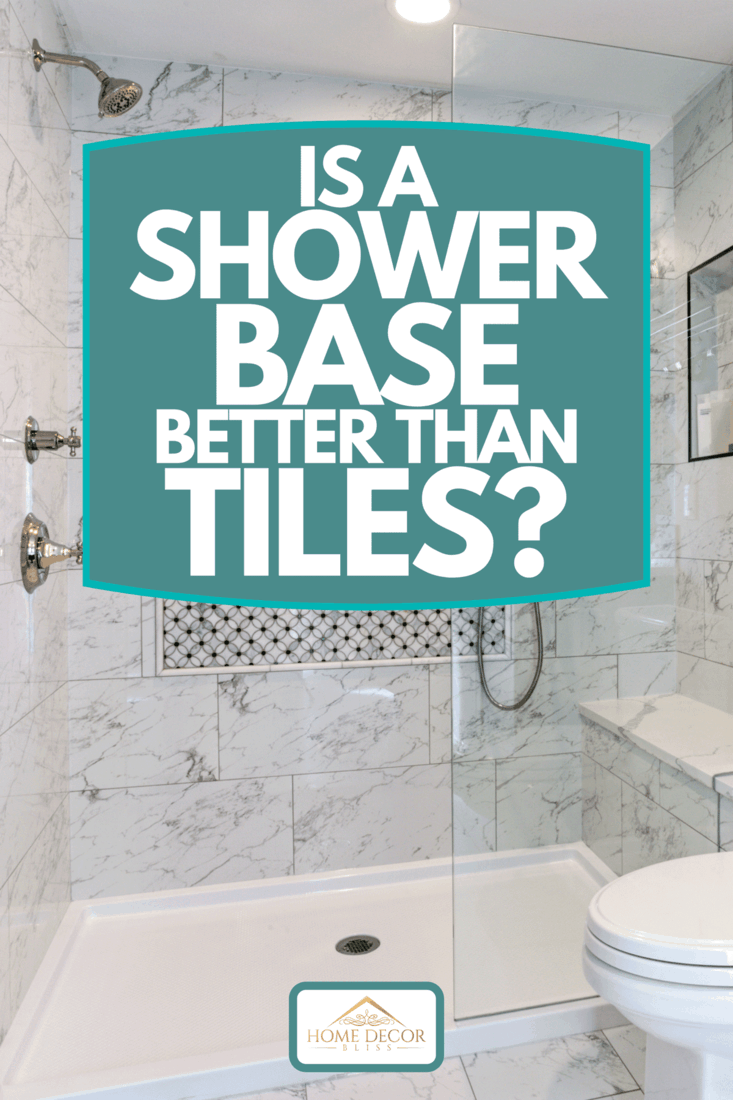
All About Shower Bases
We sometimes add affiliate links and content that was curated and created by our team with the help of advanced ai tools to help showcase the best design styles.
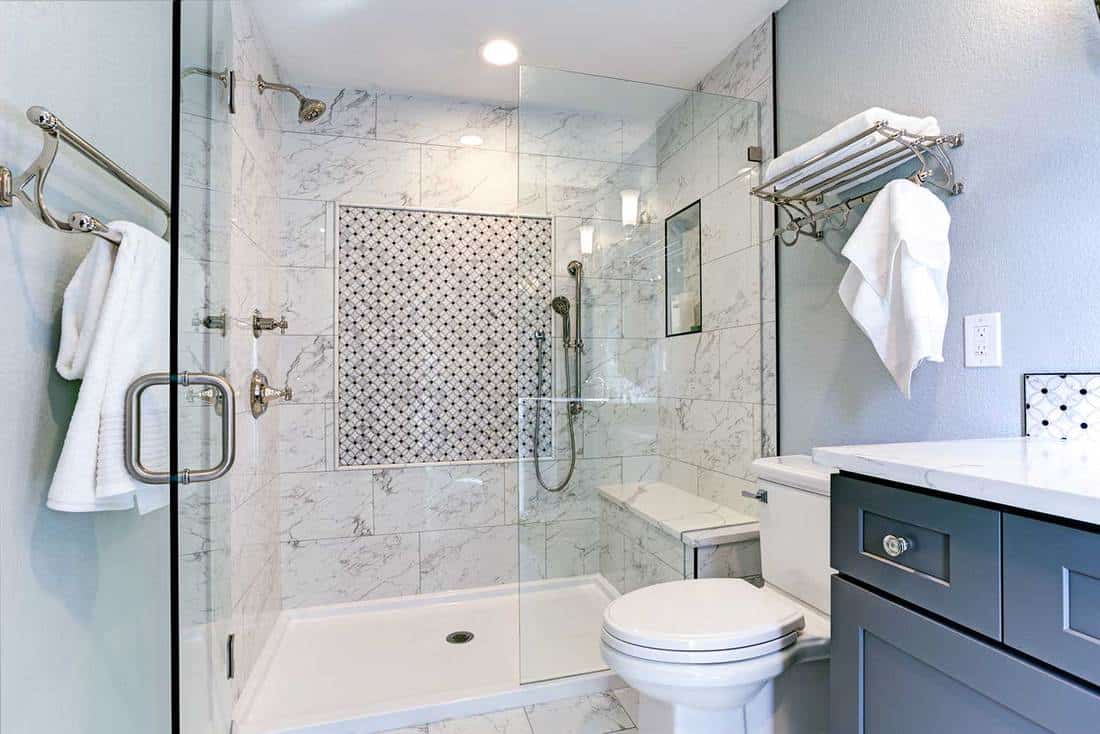
Shower bases or pans come in a variety of materials. However, as a general rule, they are more affordable than tile floors. Acrylic is the cheapest material. On the other end of the range, cast iron, though durable, may not actually be any lower in price than tile.
Another advantage for many is the cleaning. Prefabricated shower bases are less sensitive or particular about how they are cleaned. Once again, the material and the quality of the bases vary. This means there is some difference in cleaning each one and determining what cleaners are safe, but bases are less finicky overall.
Not to mention, a solid base doesn't have the grout lines regularly needing to be cleaned. And, finally, they won't need to be resealed regularly or regrouted like tile.
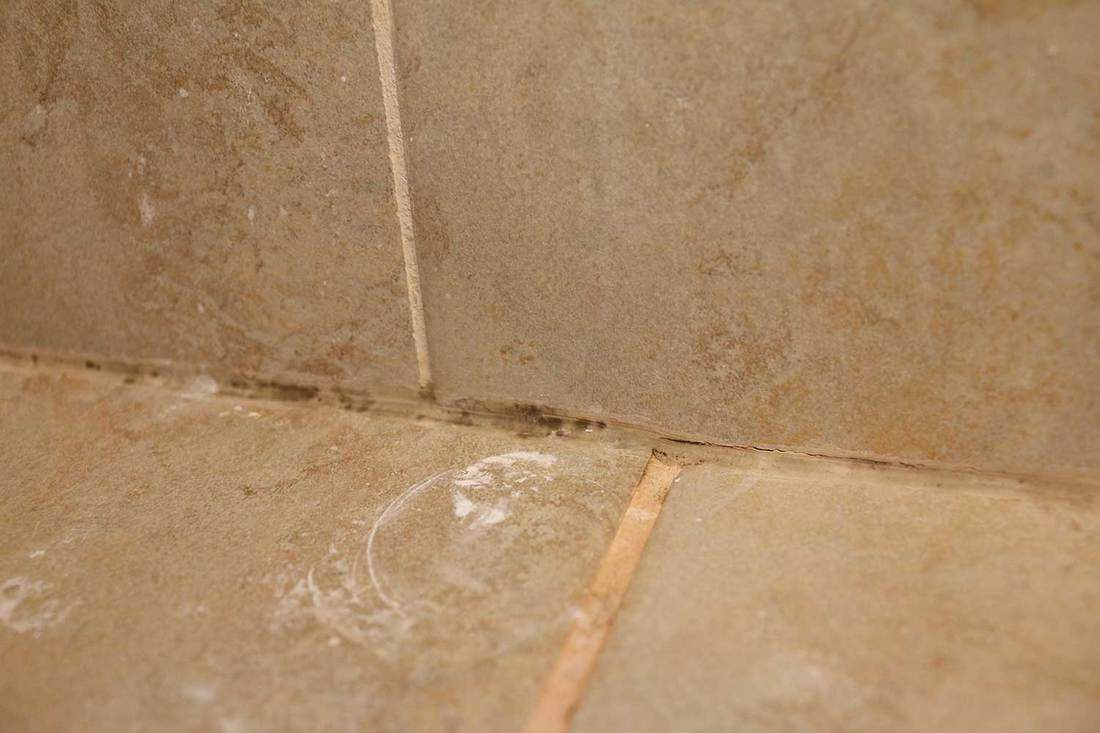
For many people, the biggest advantage is that a prefab shower base is much easier to install. Tiled floors require a lot of steps for proper installation. If anything is done incorrectly, you can easily end up with extensive water damage or other problems.
A shower base, on the other hand, is fairly straightforward. Any qualified contractor can handle the project, and it's rare to hear of nightmare installations. While the base's quality may vary, and you get what you pay for, premade bases typically don't experience a lot of leaking.
What Is the Best Material For A Shower Base?
If you want something affordable, don't rule acrylic out altogether. Many companies offer a blended acrylic that is a bit more durable and scratch-resistant but still comes at a lower price. Meanwhile, pans made of composite resin tend to offer more style, finish, and color options.
Click here to see a resin shower base on Amazon.
However, for the most durable, hardiest base, the best material is still cast iron. Made with a porcelain or enamel glaze, these are heavy and stain-resistant. It can be a more difficult installation for the average homeowner, however, and you'll need to be sure that your floor can support it.
How Long Does A Shower Base Last?
One disadvantage of a shower base, compared to tile, is that it flexes and moves slightly with every movement. As a result, if the floor itself has too much motion, a shower base can crack and fail earlier than expected. However, in most cases and with average use, a shower base will last roughly 10 years. It also requires less upkeep than a tile floor. Read more about "How Long Do Showers Last."
If you're concerned about whether your floor can support a prefabricated shower base, consult a qualified contractor. They'll be able to offer a professional opinion on whether or not to make adjustments to your flooring before installing a shower base.
All About Tiled Floors
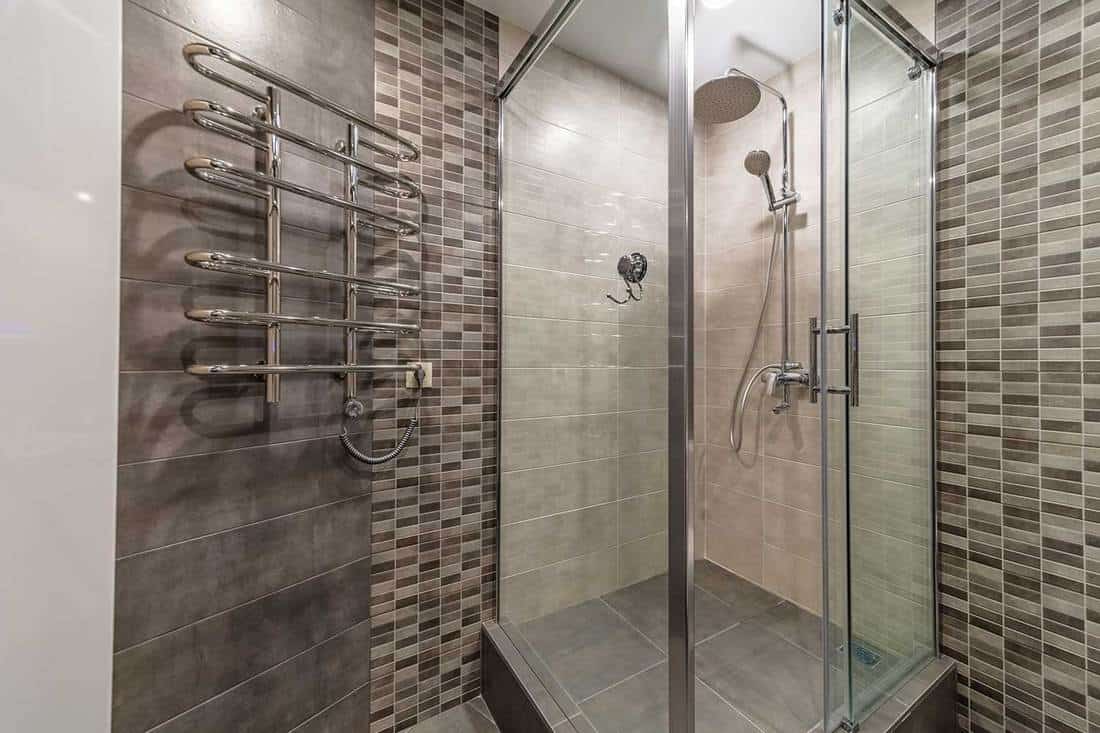
Many people who choose tiled floors simply like the look better. And there's a lot to be said there! Prefabricated bases have fewer options for color, material, style, and finish. Often, at home improvement stores, you find basic white. Tile, on the other hand, is almost limitless. Tiled showers tend to improve the resale value of a home, as they just look better.
Tile is considered to be a more durable and permanent choice, as well. Once the tile has been installed, it's a lot of work to reverse it back to a regular shower base. If you don't plan on keeping the bathroom this way for long, don't add tile until you're ready for a long-term change.
Some people go with tile because the shower is an unusual size. It's not always easy to find a premade base in a custom size. On the other hand, lay tiles to fit any size or shape for a shower, no matter how atypical.
Finally, if safety is a serious concern, it's easier to find more slip resistance options with tile. However, there are special gels and anti-skid coatings available for prefabricated shower bases as well. No matter which one you choose, be sure to consult with a bath designer as to your safest options for preventing falls.
What Do You Put Under Tile In A Shower?
There are several options for the subfloor. The most important thing is to have the surface waterproof and ready for tile. No matter which option you choose, you'll be making a custom shower pan. This is not as quick or as easy as purchasing a prefabricated one like above. It's vital to know what you are doing - if you don't lay the pan correctly, it will leak and damage the rest of the floor.
You can make a mud pan by combining Portland cement and sand. Spread this in a thin layer across the subfloor, which already has the drain installed. Next, lay tar or felt paper and a waterproofing membrane such as Chloroloy. This goes up to the wall frame, and another layer of cement and sand is laid down.
Click here to see Portland cement on Amazon.
There's a similar approach that uses the same ingredients but with less mudding. This puts less weight on the subfloor, dries faster, and works best when the shower floor is level with the rest of the bathroom floor.
And, finally, you can buy a premade pan that is ready for tile. These products are specific and typically custom, so installation will vary. But, they can simplify the installation if you really want the aesthetic of tile floors but aren't quite handy enough to do it all yourself. Check out companies such as TileRedi for this service.
How Long Does A Tiled Shower Last?
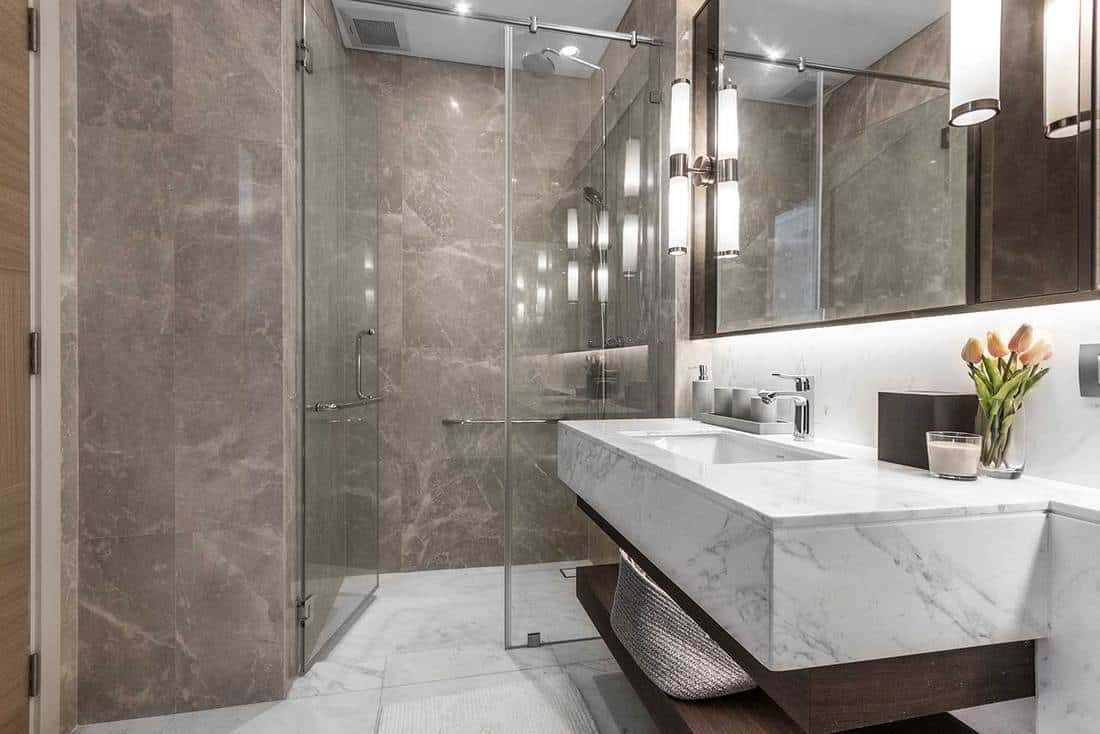
In theory, a tiled shower can last forever - you'll need to replace individual tiles as they chip or crack. Many longevity estimates are in the ballpark of 20 years. At that point, many people seem ready to redo them, even if they technically could just keep replacing tiles one at a time. Want to know more about replacing tiles? Try: "6 Shower Tile Repair Solutions [Easily Fix Cracks, Chips, And Holes]."
While this is twice the lifespan of a prefabricated shower base, don't forget that tiled showers have more regular upkeep. Tile requires resealing and regrouting. They also take more effort to clean, and the grout lines will show dirt or mildew.
In Conclusion
Pre-fab shower bases come in acrylic, resin, or cast iron. They are often more affordable than tiled floors. They are also quicker and easier to install, with fewer chances of complications. However, tiled floors are more customizable. They come in a range of styles, sizes, and materials.
You can create a unique look with a tile floor, though it may cost a bit more. Tile also requires a bit more effort in upkeep, though it does create a more attractive bathroom. In the end, both are perfectly acceptable choices. Pick whichever one suits your style and lifestyle the best!


